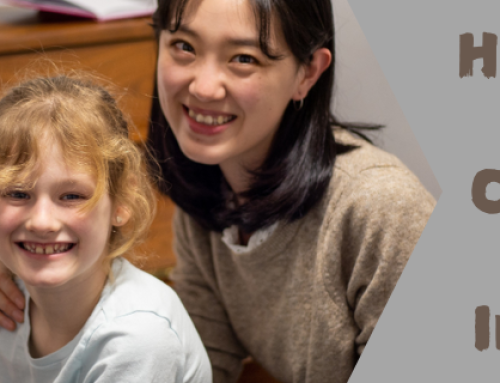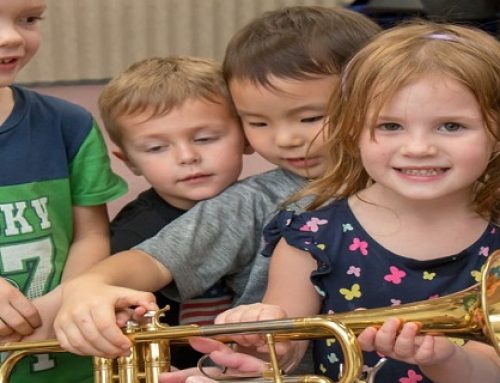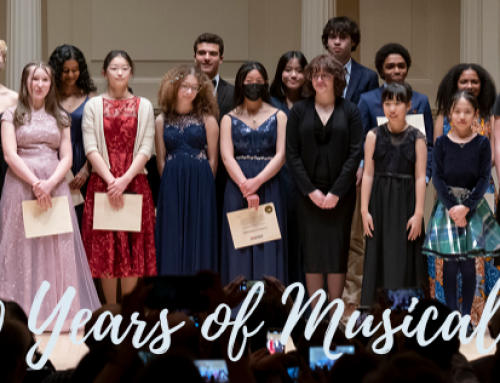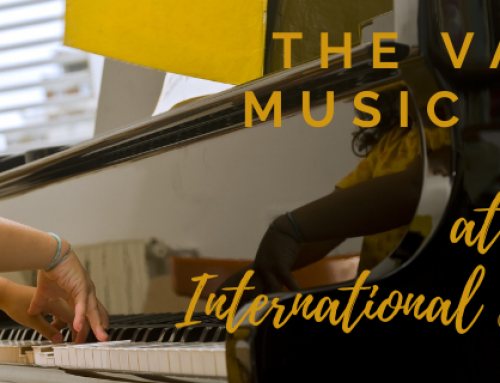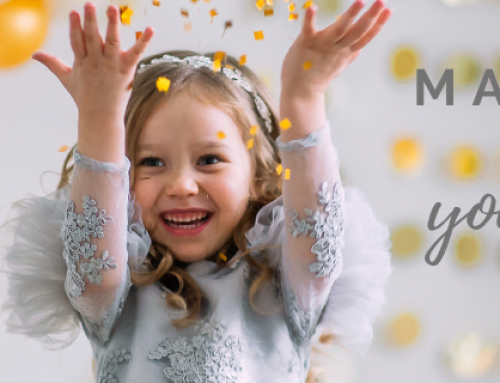It goes without saying that engaging in music, be it listening, performing, or creating music, is transformative. In the age of immediately available streaming music on any number of platforms, we know that music is strongly attached to our emotions. We also know that music helps with spatial relationships, mathematical abilities, reading comprehension, and so much more.
That said, children with disabilities or other special needs can also find incredible solace in music making, and like regular education children, have the potential to make progress and grow into amazing musicians. If your child is interested in music lessons, then contact us today to schedule one! With locations in Bethesda and Potomac, there is no reason not to join The International School of Music. Continue reading for some ways that music especially benefits children with special needs.
Music Motivates
In a private lesson setting, communication is key between student and teacher. What child can resist a teacher dangling a really cool sounding, or looking, instrument without wanting to get his/her hands on it? Hooked by their innate thirst for knowledge and curiosity, nonverbal kids are prompted to communicate about something as simple as wanting to hold the instrument.
Music is Multi-sensory
Music appeals to both the needs and strengths of children with disabilities in an environment that approaches many of the senses. Music stimulates the senses in the following ways:
- Tactile – Touching the instrument.
- Kinesthetic – Muscle development, coordination and motor skill development, and muscle memory.
- Auditory – Listening to the sounds the instruments make or listening to recordings.
- Visual – Tracking body movements and reading music and words.
- Executive Functions — For students with ADHD, music helps control attention span and teaches concentration and focus
Music Uses Both Hemispheres of the Brain:
We often think of music as being a “right-brained”, or predominantly creative activity. However, music really is a full-brain experience. While producing music and emotionally responding to music are certainly right-brain activities, our ability to analyze and process pitch, rhythm, tempo, and melody engage the left hemisphere as well. This fully engaged understanding leads to a deeper connection to the music with which we interact.
Music (Can Be) Nonverbal
The limited dialogue that occurs in a lesson, performance, or other listening experience allows music to be a safe haven for students with communication challenges. Although, in some ways, we can use music to foster more communication, and it can even be used as an outlet for those who can’t, or don’t, speak to express their thoughts and feelings.
Music Bonds Us
Do you feel closer to someone when you’re discussing music taste with a friend and find out that you like the same artists? Any idea why that happens? Your brain releases Oxytocin, which is the “bonding” hormone when you listen to music, connecting you to the people you’re enjoying it with. For students who struggle with social interactions, music is a great way to make new friends and bond with people who share their interests.
From missing limbs, to blind or deafness, to mental disorders, even famous musicians have been known to overcome or mitigate their disabilities through music. Ray Charles, Itzhak Perlman, Andrea Bocelli, Demi Lovato, Ryan Adams, and Sammy Davis, Jr. are just a few musicians who exemplify this kind of musical excellence, inspiring the world every day.
All of this said, it’s important to understand that music teaches and parents should encourage these valuable skills, even if your child has no intention of professionally pursuing the field. All children, even those with disabilities, have traits that make them unique, and learning music will only help further develop those amazing qualities!
Want to Know More?
The Center for Music Learning at the, University of Texas: helps you find the tools to best approach music learning with your child’s specific disability!
Famous Musicians with Disabilities assists: those looking for inspiration from the celebrity musical community – you’re not alone!
To sign up for an introductory lesson with us, please give us a call at 301-365-5888 or request information about our classes, our music lessons in Bethesda and Potomac, our music teachers, and how your child can benefit from music!


